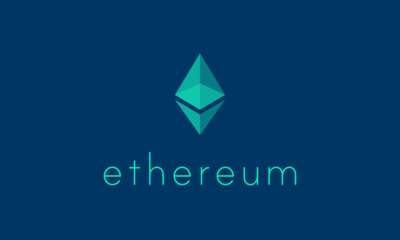Blockchain is set to irreversibly shake up the global payments system – for the better, predicts the CEO of a global financial giant.
The prediction by Nigel Green of deVere Group, one of the world’s largest financial advisory, asset management and fintech organisations, comes amid growing adoption of cryptocurrencies like Bitcoin, and a flurry of global financial innovation as central banks around the world push to develop their own digital currencies (CBDCs).
The U.S. Federal Reserve, the world’s most influential central bank, has for the first time launched an in-depth discussion paper that will act as the basis of what will be a consequential debate about introducing a digital dollar.
But the U.S. is lagging behind economic rival China, which is already piloting a digital renminbi. The European Central Bank has also made significant progress in the move towards a digital euro, the Bank of England has invited comments on a recent discussion paper, Sweden has finalised a technical pilot, and ahead of the pack, last April, the Bahamas introduced the world’s first CBDC.
Nigel Green says: “Bitcoin and other cryptocurrencies are reaching the point of critical mass, the moment at which a new way of doing things crosses a threshold and takes hold.
“Most governments around the world have already realised that digital is the inevitable future of money.
“The move towards digital transactions had been taking place for years but has been accelerated since the start of the pandemic.
“For this reason, and because the likes of Bitcoin are out of their control, they’re in a race to launch digital currencies of their own, fully aware that digital currencies in our digital era simply make sense.”
He continues: “Clearly, there’s growing demand for digital assets from governments and their agencies, businesses, and institutional and retail investors.
“But, besides the existing demand, what will really drive the rise and rise of digital payments will be harnessing the power of blockchain – or distributed ledger technology – which will fuel it moving forwards.
“Recent research being carried out by the Bank of Estonia, amongst others, shows that ongoing developments of the already pioneering blockchain technology will empower a payment system that’s more powerful and faster than the card payment and instant payment systems currently used globally today.
“In addition, it was found that payments made with this tech used less energy than credit card payments by a factor of 1,400.”
Blockchain also provides major opportunities for cost-cutting and for enhanced security too – both for financial institutions and users.
“Major financial institutions, such as banks, could slash perhaps tens of billions of dollars each year using distributed ledger technology by decommissioning legacy systems and reducing operating costs,” says Nigel Green.
“For consumers, high global remittance costs (on average 6.3%, according to the World Bank) that exist because of complexities involved in routing and central intermediaries will be all but eliminated.”
On top of all this, arguably, the strongest advantage that blockchain offers institutions and consumers is against theft and fraud.
“The ability to track funds on a tamper-proof ledger is a powerful preventative security measure.”
Blockchain is still an emerging technology, and there are outstanding areas that need to be addressed, says the deVere boss, and it may take “five to 10 years to reach the ultimate maturity.”
However, he adds: “Due to the lightning pace of blockchain innovation and adoption across every sector, blockchain is set to irreversibly shake up the global payments system. It will be a snowball effect.”
He concludes: “Blockchain will support a payment system that’s faster, greener, cheaper and safer than the systems of today – and, as a result, it will be the main driver for the anticipated global surge in digital transactions.
“Blockchain’s seismic influence will change how we pay and how we do business forever.”






 Naira4 weeks ago
Naira4 weeks ago


 Naira3 weeks ago
Naira3 weeks ago


 News4 weeks ago
News4 weeks ago
 Travel4 weeks ago
Travel4 weeks ago




 Naira4 weeks ago
Naira4 weeks ago
 Naira3 weeks ago
Naira3 weeks ago


 Jobs3 weeks ago
Jobs3 weeks ago


 Travel3 weeks ago
Travel3 weeks ago


















